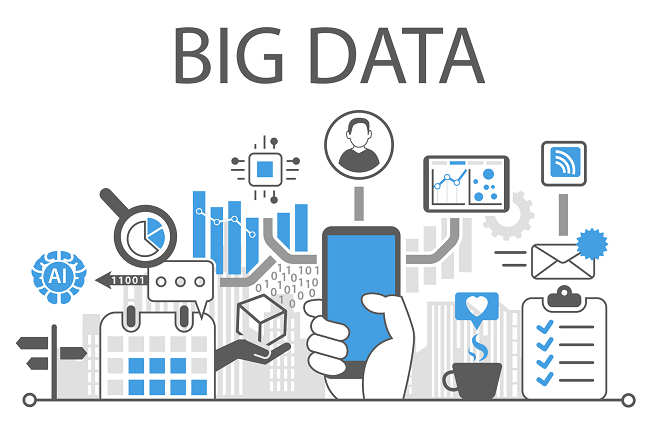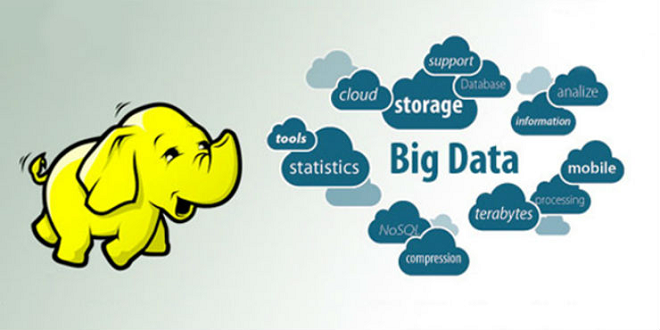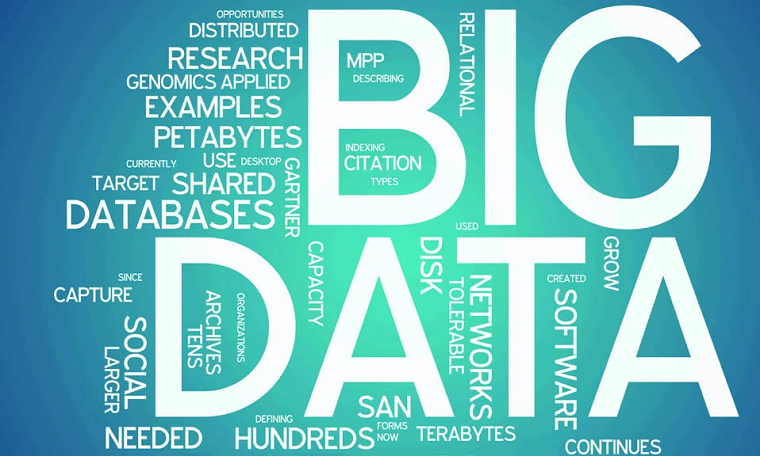Big Data refers to the vast amounts of data. Big Data is a relatively new technological term, which emerged mainly after the 2000s. The word got coined gradually when reference had to be made to vast amounts of data. Huge amounts of data in different sectors get accumulated and need proper processing. But handling such huge amounts was not easy previously. With the emergence of database management systems dedicated for such unmanageable volumes of data, like the Hadoop. Things gradually came into the grip.
The emergence of Big Data
Vast amounts of structured or unstructured data emerge out of many systems. This may be data related to the country’s population, government jobs, government projects, relief works, nonprofit and charitable works, scientific data, critical global metrics, country and location specific metrics, and many such things, which needs to be aligned and kept organized. Huge amounts of Big Data come into existence, and their volume also keeps on increasing day by day. Controlling the super expansion of such data is essential.
 Data in an unorganized form is of no good use. It cannot be used in any constructive way. Unorganized data cannot be accessed or processed to make use of it for any research, analysis, etc. Such Big Data needs to be organized.
Data in an unorganized form is of no good use. It cannot be used in any constructive way. Unorganized data cannot be accessed or processed to make use of it for any research, analysis, etc. Such Big Data needs to be organized.
The requirement of management of Big Data
When Big Data gets organized, it gets useful and can be used in a variety of ways for a constructive purpose. Data for a scientific project unless organized into proper tables with proper tagging and definitions, labels, etc., cannot be considered good enough for use. Not a single data can be accessed unless they are arranged. And hence Big Data needs an arrangement. There are some excellent programs and database management systems available now, which are designed to manage excessive significant amounts and chunks of data, which keeps on increasing at an immense rate every day.
How Relational DBMS is used
Database management systems evolved. Initially, they were simple. With time they grew to be complicated. The simple DBMS (database management systems) got changed to become RDBMS (relational database management systems). When relational databases emerged, they gave the DBMS a new dimension and better management capacity. In this way with the emergence of Hadoop like the system to handle even bigger chunks of data, the people, organization, and departments handling Big Data got relief, that now they have something useful to rely on for thoroughly sorting and managing their data, and making it great to access and process.
Systems like Hadoop in managing Big Data

Hadoop is a system efficient enough to handle huge volumes of data, which may have the following characteristics:
- Complexity– data can be complex of diverse types. Some can be clean, some mixed, some difficult to match or link to others. In this way, data comes with many complexities.
- Variety– data may contain so many varied formats, which would be confusing to handle for an inefficient system. Various file formats, media formats, structured and unorganized data, all can form a mess together.
- Volume– data collected from organizations come from varied sources, each source contributing to several data, and many things happen in repetition. Hence data have to be sorted and stored. And strong unprocessed data, and later the processed data is also a big challenge, which is overcome by such efficient systems.
- Velocity– the data can emerge out at varying speeds. Some may come in speed while some may come out at a slow pace. Collecting data coming at different speeds and very high velocity is the job of Hadoop based systems.
- Variability– data may vary in load. Sometimes at peak time or hours, the burden of data may go too high, and sometimes the load may go low. Balancing between the two, and yet collecting all data efficiently when at the highest peak and volume is the job of a Hadoop system.
How Big Data can be used
The use of Big Data does not depend on how much data you are getting every day. It depends on how you plan to use it every day. There can be great ways to make use of the data your organization is receiving each day. So much of market analysis, market research and lots of evaluation can be done based on the data.
- The primary cause of failure or success and the problems behind significant issues and effects in a business or organization can be identified using Big Data analysis.
- With such data, coupons can be generated precisely based on customer behavior and buying habits.
- Risks can be evaluated, and risk portfolios can be recalculated instantly.
- Frauds can be detected and objected before things get affected.
Many such things can be done instantly by using the considerable volume of data circulating you. For that, you must be using one of the most efficient Big Data processing database management systems.
Using remote DBA systems for managing Big Data
Not every other person is a Big Data handling expert. But you can get and hire experts from services like RemoteDBA.com. Remote DBA systems are designed to handle chunks of such high volumes of data using efficient DBMS systems like Hadoop. Big Data management demands particular expertise and experience, which the remote database administration teams have. Hence, you can get great services from a team like this from anywhere, and get all the data arranged in the cloud, easy to access, and fell short.
Finally
Organizations do not let their data get wasted. Organizations collect huge amounts of data every day. They use this data in smart ways. The most intelligent approach to the handling of Big Data is to get experts to handle it. And the best way is to hire remote DBAs for this. Teams working in remote always have round the clock data management features thereby increasing their efficiency to a level, that they are still available for any crunch and management. They are still available for asking reports and clarifying things.
Organizations love getting involved with responsible teams like these who can be hired at a budget and can be put to the handling of such huge volumes of varied data to make their existence mean for the business or work.

